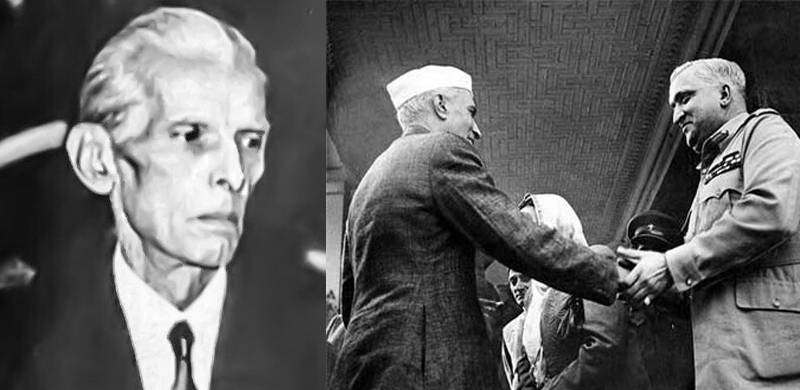
A lot of ill-informed opinions are being shared online by so-called experts on the Kashmir issue and Balochistan.
Here are 15 things for beginners to remember:
1. Neither in the 3 June, 1947 Partition Plan announced by the British Government nor in the 18 July Indian Independence Act was the partition of India about anything except the directly-administered British provinces and other territories.
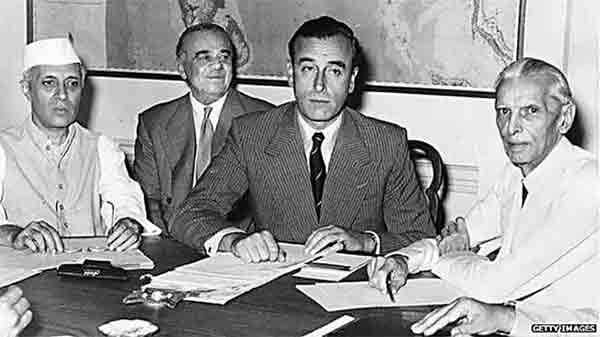
2. The princely states had the right either to join India or Pakistan or remain independent. They were not part of the partition but a separate category.
3. The Nawab of Junagarh declared his intention to accede to Pakistan. Junagarh was removed from the Pakistan border west of it in Sindh by a couple of hundred kilometres. 90 percent of the population was Hindu. India protested but Jinnah accepted that accession. He even tried to make the Maharaja of Jodhpur join Pakistan which was close to the Sindh border and even a state in south India ruled by a Hindu raja. Only Junagarh did that and to its own peril. Even today Pakistan claims Junagarh on grounds that the Nawab had acceded to Pakistan and it is on record in the United Nations.
4. Everyone knows that the Maharaja of Kashmir wanted to remain independent. He hated Nehru and his socialist programme and disliked Jinnah for his cold attitude.
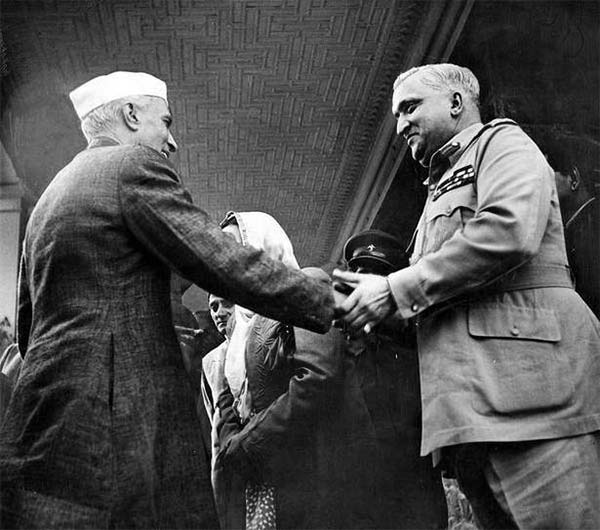
5. First, the Muslim Conference masterminded a revolt in Poonch of the Muslim soldiers of the Kashmir Army and it resulted in the carnage of Hindus and Sikhs.
6. In Jammu, the forces of the Maharaja carried out an even bigger massacre of Muslims.
7. On the night of 21-22 October Pakistan sent in tribals and Pakistani soldiers dressed in civilian clothes to go into Kashmir and help foment a revolt of Kashmiri Muslims against the Maharaja. Sheikh Abdullah who was a close associate of Nehru opposed Pakistani incursion. The tribals forgot what they were sent into Kashmir to do and as an old vice began to loot and plunder and rape Kashmiri women. They even raped rather old Catholic nuns who had a monastery in Kashmir.
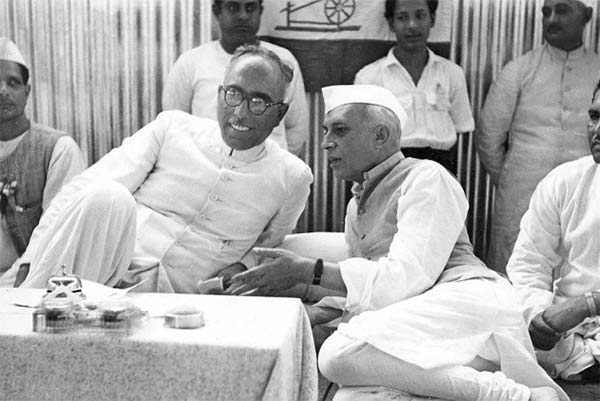
8. Indian help was given to the Maharaja after he signed the accession bill on 26-27 October 1947.
9. In February 1948, Pakistan committed its army openly to the war in Kashmir. All accounts available show that the Indian army not only could stop the Pakistani forces, but they had also begun to drive them back. By May 1948, the Pakistanis were being pushed back. After a point, the Indians decided not to go further. On 1 January 1949, the UN Security Council brokered a Ceasefire. The UN resolutions required both sides to withdraw from the princely states before a plebiscite could be held. Neither side showed any willingness to do that.
10. Now we come to Balochistan. It had two sorts of entities. The Kalat princely state and several of its vassal states on the one hand and on the other British Balochistan which had a Shahi Jirga. In June 1946 Jinnah represented the Khan of Kalat before the Cabinet Mission where he strongly pleaded for the independence of Kalat. However, after the transfer of power to Pakistan on 15 August 1947 Kalat was put under pressure to accede to Pakistan.
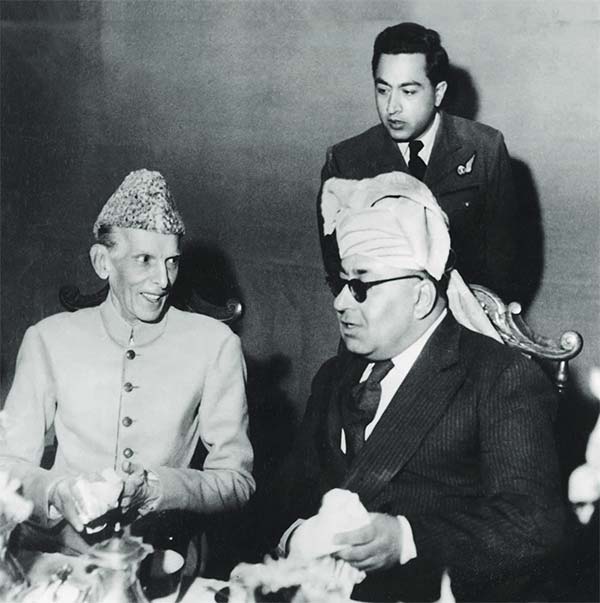
On 11 August 1947 Kalat had already declared itself independent. At the end of March 1948, the Khan was browbeaten into changing his mind. This was opposed by several Baloch chieftains including the brother of the Khan of Kalat, Prince Karim.
11. Sardar Patel offered Jinnah that if Pakistan did not encourage the Nizam of Hyderabad to join Pakistan or remain independent - Hyderabad was deeply situated in southern India and had no access to the sea - then Pakistan could keep Kashmir. (My forthcoming book on Jinnah would shed further light on this topic).
12. On 13 September 1948 Indian forces moved into Hyderabad state and crushed the declaration of independence of the Nizam - something which Jinnah had encouraged him to do.
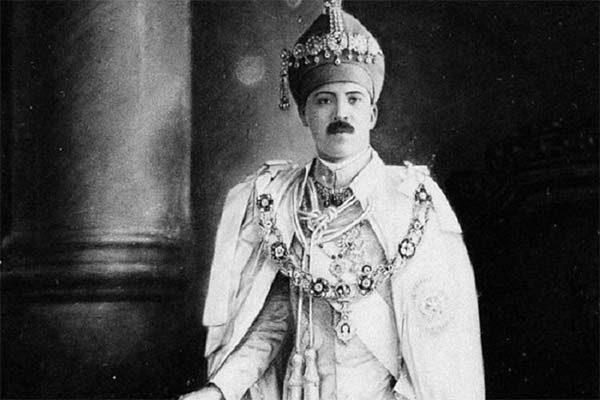
The net result was that Pakistan lost both Kashmir and Hyderabad.
13. The UN resolutions on Kashmir made preconditions which have never been fulfilled. After India agreed to release 94 thousand Pakistani POWs from East Pakistan if Pakistan agreed to treat the Kashmir and other disputes as bilateral issues known as the Simla Agreement of 1972, the UN resolutions have become redundant, obsolete and superfluous.
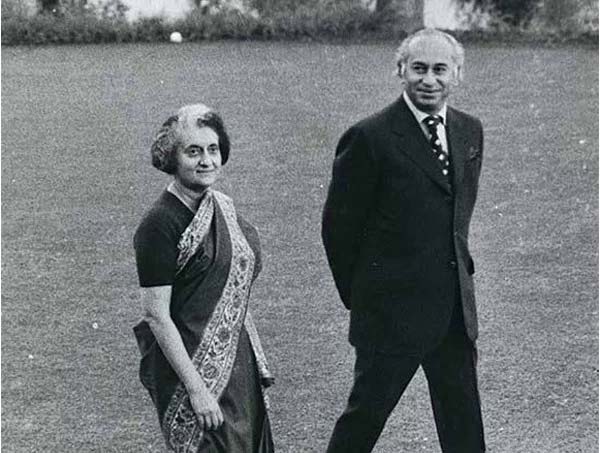
14. The Lahore Accord of 21 February 1999 again emphasized the bilateral nature of the resolution of the Kashmir and other issues.
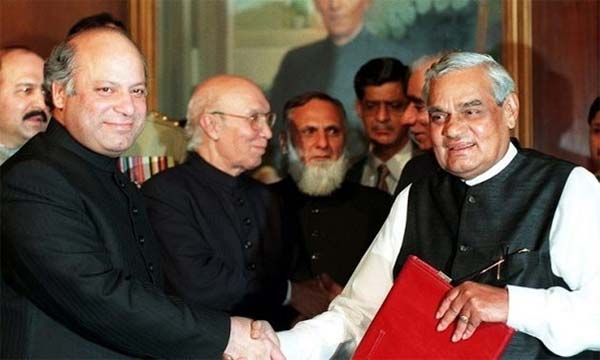
15. In 2009, Sec-Gen Kofi Annan announced that the Kashmir issue was covered by Chapter 6 and not by Chapter 7. Chapter 6 required India and Pakistan voluntarily to agree to apply UN resolutions. The Security Council had no obligation to enforce the resolutions.
Here are 15 things for beginners to remember:
1. Neither in the 3 June, 1947 Partition Plan announced by the British Government nor in the 18 July Indian Independence Act was the partition of India about anything except the directly-administered British provinces and other territories.

2. The princely states had the right either to join India or Pakistan or remain independent. They were not part of the partition but a separate category.
3. The Nawab of Junagarh declared his intention to accede to Pakistan. Junagarh was removed from the Pakistan border west of it in Sindh by a couple of hundred kilometres. 90 percent of the population was Hindu. India protested but Jinnah accepted that accession. He even tried to make the Maharaja of Jodhpur join Pakistan which was close to the Sindh border and even a state in south India ruled by a Hindu raja. Only Junagarh did that and to its own peril. Even today Pakistan claims Junagarh on grounds that the Nawab had acceded to Pakistan and it is on record in the United Nations.
4. Everyone knows that the Maharaja of Kashmir wanted to remain independent. He hated Nehru and his socialist programme and disliked Jinnah for his cold attitude.

5. First, the Muslim Conference masterminded a revolt in Poonch of the Muslim soldiers of the Kashmir Army and it resulted in the carnage of Hindus and Sikhs.
6. In Jammu, the forces of the Maharaja carried out an even bigger massacre of Muslims.
7. On the night of 21-22 October Pakistan sent in tribals and Pakistani soldiers dressed in civilian clothes to go into Kashmir and help foment a revolt of Kashmiri Muslims against the Maharaja. Sheikh Abdullah who was a close associate of Nehru opposed Pakistani incursion. The tribals forgot what they were sent into Kashmir to do and as an old vice began to loot and plunder and rape Kashmiri women. They even raped rather old Catholic nuns who had a monastery in Kashmir.

8. Indian help was given to the Maharaja after he signed the accession bill on 26-27 October 1947.
9. In February 1948, Pakistan committed its army openly to the war in Kashmir. All accounts available show that the Indian army not only could stop the Pakistani forces, but they had also begun to drive them back. By May 1948, the Pakistanis were being pushed back. After a point, the Indians decided not to go further. On 1 January 1949, the UN Security Council brokered a Ceasefire. The UN resolutions required both sides to withdraw from the princely states before a plebiscite could be held. Neither side showed any willingness to do that.
10. Now we come to Balochistan. It had two sorts of entities. The Kalat princely state and several of its vassal states on the one hand and on the other British Balochistan which had a Shahi Jirga. In June 1946 Jinnah represented the Khan of Kalat before the Cabinet Mission where he strongly pleaded for the independence of Kalat. However, after the transfer of power to Pakistan on 15 August 1947 Kalat was put under pressure to accede to Pakistan.

On 11 August 1947 Kalat had already declared itself independent. At the end of March 1948, the Khan was browbeaten into changing his mind. This was opposed by several Baloch chieftains including the brother of the Khan of Kalat, Prince Karim.
11. Sardar Patel offered Jinnah that if Pakistan did not encourage the Nizam of Hyderabad to join Pakistan or remain independent - Hyderabad was deeply situated in southern India and had no access to the sea - then Pakistan could keep Kashmir. (My forthcoming book on Jinnah would shed further light on this topic).
12. On 13 September 1948 Indian forces moved into Hyderabad state and crushed the declaration of independence of the Nizam - something which Jinnah had encouraged him to do.

The net result was that Pakistan lost both Kashmir and Hyderabad.
13. The UN resolutions on Kashmir made preconditions which have never been fulfilled. After India agreed to release 94 thousand Pakistani POWs from East Pakistan if Pakistan agreed to treat the Kashmir and other disputes as bilateral issues known as the Simla Agreement of 1972, the UN resolutions have become redundant, obsolete and superfluous.

14. The Lahore Accord of 21 February 1999 again emphasized the bilateral nature of the resolution of the Kashmir and other issues.

15. In 2009, Sec-Gen Kofi Annan announced that the Kashmir issue was covered by Chapter 6 and not by Chapter 7. Chapter 6 required India and Pakistan voluntarily to agree to apply UN resolutions. The Security Council had no obligation to enforce the resolutions.
